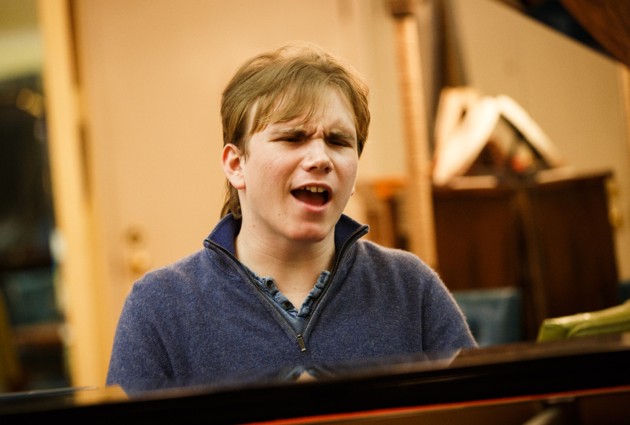
We found this article by Linda Marsa of The Atlantic to be very interesting:
Rex-Lewis Chapman was born blind, due to a congenital condition called septo-optic dysplasia. He had serious cognitive disabilities as a child, and severe symptoms of autism: Even the faintest noises would make him scream, and he was so sensitive to touch that he kept his hands balled up in fists. His doctors predicted he would never walk or talk.
When he was 2, Lewis-Clack’s father gave him a piano keyboard. It became his gateway to the outside world. Lewis-Clack taught himself to play the piano. When he began formal lessons at age 5, his teacher noticed his remarkable gifts. Lewis-Clack has perfect pitch, a phenomenon that occurs in about 1 in 10,000 people: He can identify a musical note immediately, even when he hears it completely out of context. Although he cannot see and cannot read music, he only needs to hear most songs once to play them back perfectly.
Because of his exceptional musical talent and his intellectual disability, he is considered a savant—one of those unusual people, who struggle with tasks that most people find simple, yet has extraordinary abilities that few could hope to attain.
Once thought to be rare in people with autism, found in no more than 1 out of 10 individuals, research over the past few years suggests savants may be more common: As many as one in three people with autism may possess exceptional abilities.
Research in the past 10 years has generated some controversy about the actual incidence of savantism. Some researchers say these seemingly extraordinary abilities may just reflect the fact that many people with autism have a different skill set than their typical peers do.
Most savants have special abilities in musical, artistic, mathematical, or mechanical domains, coupled with extraordinary memory. Stephen Wiltshire, for instance, a British savant and artist who was diagnosed with autism at age 3, has been called a “human camera” because of his ability to draw landscapes from memory after seeing them only once. Other savants possess the uncanny skill of ‘calendar calculating’—quickly computing the day of the week of any arbitrary date in the past or future—highlighted in the 1988 Oscar-winning movie “Rain Man.” Still others may have a facility with foreign languages, the ability to measure distances or heights with precision without using instruments, or exceptional map-reading skills. But only a handful possess Lewis-Clack’s extraordinary gift.
In 2013, Lewis-Clack and his mother launched a foundation for after-school programs for blind children with autism in southern California. His mother talks about all the things he has done, such as performing at fundraisers for Best Buddies International, serenading Vice President Joseph Biden and his family at their Washington, D.C., residence for a reception honoring Eunice Kennedy Shriver, and being greeted like a rock star at a music festival in Freiburg, Germany, where the whole town turned out to hear him play.
Today at 21 Lewis-Clack spends most of his days immersed in music, taking voice and piano lessons, learning improvisation, and plays to packed houses at concert halls throughout the world.
Do you have an experience with an exceptionally skilled individual on the autism spectrum that you would like to share? If so, we would love to hear from you. Please leave your comment below.
Resources:
Linda Marsa
The Atlantic
The Atlantic Media Company
600 New Hampshire Ave NW
Washington DC, 20037
www.theatlantic.com

